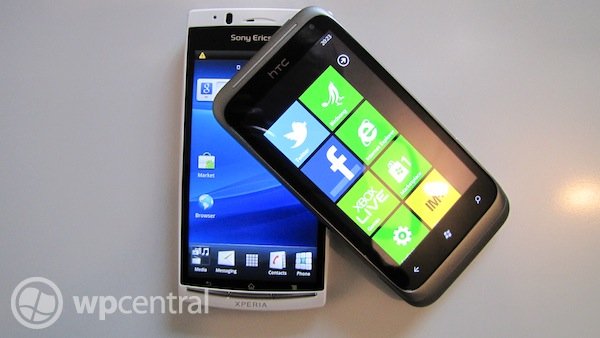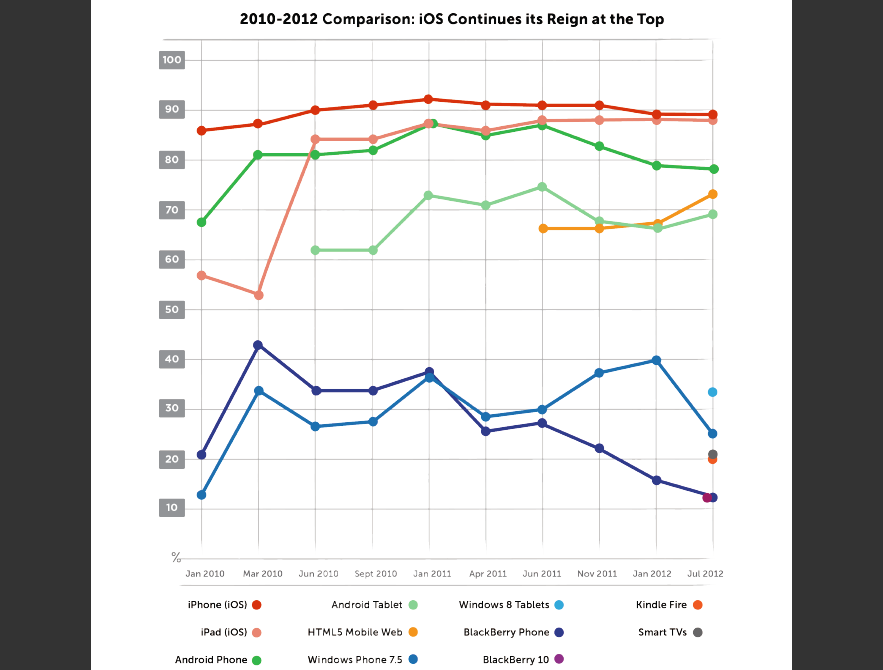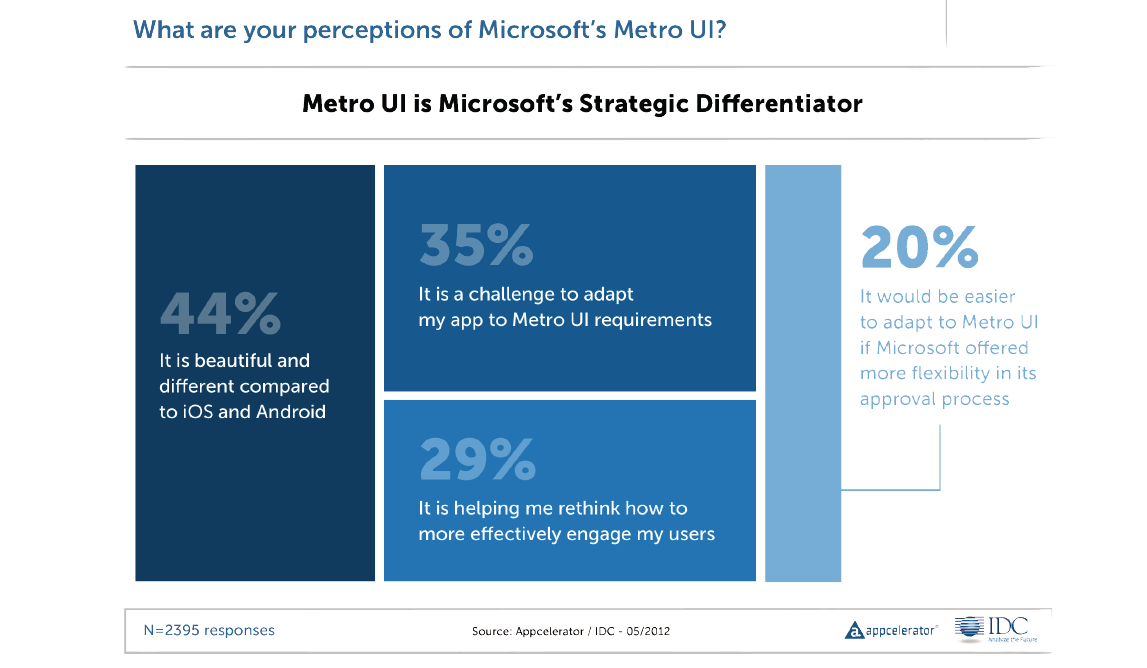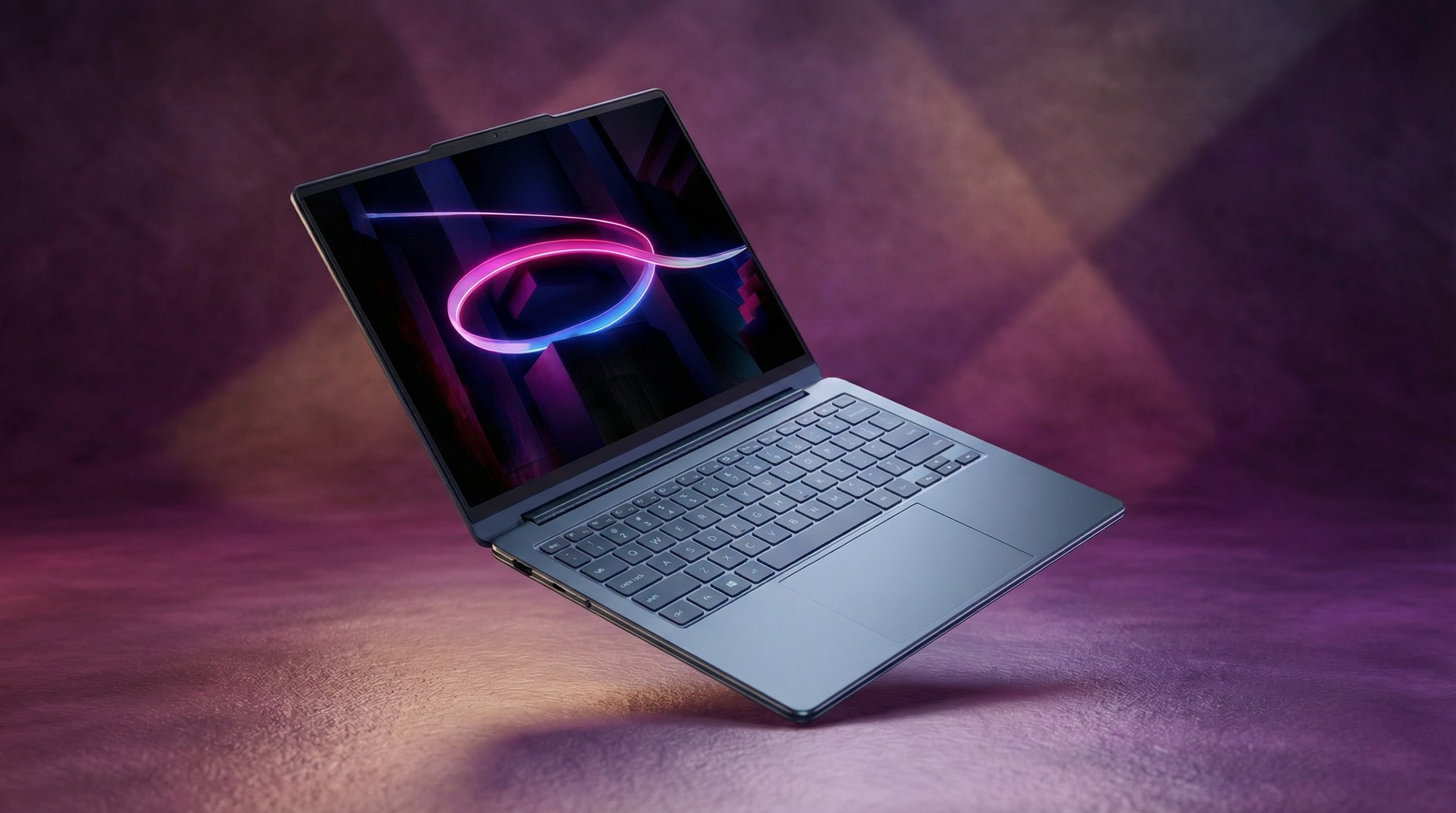New Appcelerator Report shows weakening interest in Windows Phone 7 but hope for 8

All the latest news, reviews, and guides for Windows and Xbox diehards.
You are now subscribed
Your newsletter sign-up was successful
In a new study just released tonight, Appcelerator and IDC surveyed 3,632 'Appcelerator Titanium' developers from May 11-18, 2012 on their plans for app development now and in the future. Though not a survey of consumer demand the data is but one piece of the bigger picture of how Windows Phone (and Android, iOS, BlackBerry and webOS) is fairing amongst developers. For that reason, it should be considered as a metric but not necessarily the only one to measure interest or future success.
The news is not very good for Windows Phone but there is some light at the end of the tunnel for the future iterations of the OS, specifically the ‘Apollo’ update coming later this year. That's interesting as Windows Phone has been coasting on ‘hope’ for nearly two years now and developers have not yet completely abandoned it, seeing weakness in Android.
For a complete run down, head past the break…
:
Appcelerator/IDC 2012: 'Very interested' in developing for each platofrm
The first area deals with the potential success of a mobile OS in enterprise. Here the big winner is iOS which saw an increase from 44% to 53% in one quarter (Q3 2011 vs. Q2 2012). Android has faltered a bit dropping form 44% to 37% in the same time frame. Meanwhile, Windows Phone has also dropped from 7% to 6% which is not good but it’s also not terrible—rather things are holding, relatively steadily. Blackberry and webOS have also seen declines. Clearly this is a result of the new “bring your own device” (BYOD) policy that many companies are now using instead of mass-deployed company phones.
33.3% of developers say that they are very interested in Windows 8 tablets which the study suggests may be a leverage point against Android. In short, this is a good number with developers being intrigued by the Metro UI (more on that below). While not a sure hit, Microsoft has a real opportunity here to work their way back to #1 in enterprise in the tablet and mobile OS arena.
All the latest news, reviews, and guides for Windows and Xbox diehards.
The next number is the painful one:
“Developer interest in Windows Phone 7 phones dropped sharply. WP7 “very interested” levels dropped from 37.0 % in Q1 2012 to 25.0% in Q2 2012. This was not unexpected given disappointing WP7 handset sales to date and Nokia’s recently reported competitive challenges.”
As the report notes, developers have an interest in Microsoft and their OS initiatives (Windows 8, Windows Phone 8, tablets) but in light of weak sales, they remain cautious.
Developers also have a huge interest in “the cloud” for enterprise needs with 83% planning to use such services, including push notifications, social integration, and authentication.
Despite this news, we can perhaps take some solace in the fact that Android is fading quickly out of favor with developers and IT as a result of a combination of issues:
- Fragmentation
- Malware
- IT managers re-evaluating potential enterprise-wide support for Android beyond simpler implementations like email access
- The success of the iPad causing a “halo effect” for Apple products
'Metro UI' is looking good to developers
None of that is good news for Windows Phone nor Microsoft but it does show how even enterprise can quickly tire of non-effective solutions for their employees, leaving an opening for Redmond to step in with their “three screens and a cloud” vision. The report notes:
“Developers are expressing cautious optimism towards Windows 8 tablets, with 33.3% reporting that they are very interested in developing for this device class. This is an objectively strong number for a device class that is not yet commercially available. Yet Appcelerator and IDC note that the challenge for Microsoft and its OEM partners will be to sell sufficient quantities of Windows 8 tablets to translate this nascent developer interest into strong and compelling mobile app offerings through widespread developer engagement.”
What’s more, the report also points out that 43.8% of developers find Metro UI “beautiful and different” compared to iOS and Android. That’s a fairly significant number and one that Microsoft can use to leverage interest. That’s also surprising as some in the media have expressed skepticism with the Metro UI calling it “too radical” and specifically not friendly towards enterprise. In light of this survey this claim looks inaccurate.
In conclusion, while the report shines a disappointing light on the decline in developer interest in Windows Phone 7, those same developers see what Microsoft is trying to do with Windows 8, Windows Phone 8 and tablets. In that sense, they still have room yet to maneuver especially when combined with the substantial decline in Android being adopted in enterprise.
Interestingly, the Appcelerator/IDC results back up the earlier Flurry report on developer interest which showed Windows Phone gaining on Android too, lending credence to the findings.
Source: Appcelerator / IDC Q2 2012 Mobile Developer Report

Daniel Rubino is the Editor-in-Chief of Windows Central. He is also the head reviewer, podcast co-host, and lead analyst. He has been covering Microsoft since 2007, when this site was called WMExperts (and later Windows Phone Central). His interests include Windows, laptops, next-gen computing, and wearable tech. He has reviewed laptops for over 10 years and is particularly fond of Qualcomm processors, new form factors, and thin-and-light PCs. Before all this tech stuff, he worked on a Ph.D. in linguistics studying brain and syntax, performed polysomnographs in NYC, and was a motion-picture operator for 17 years.


